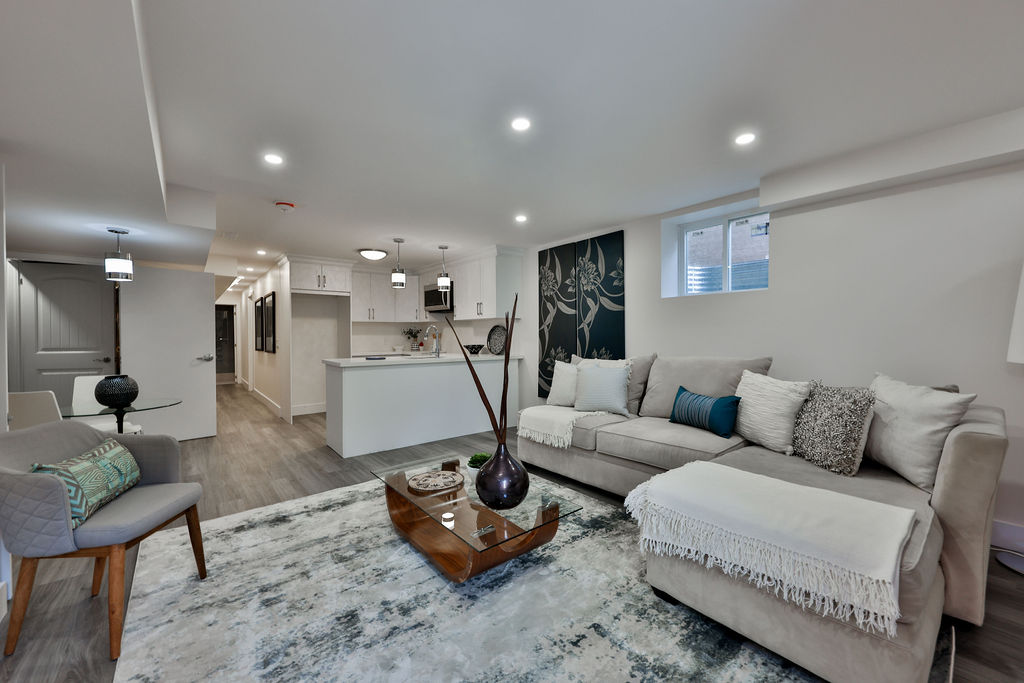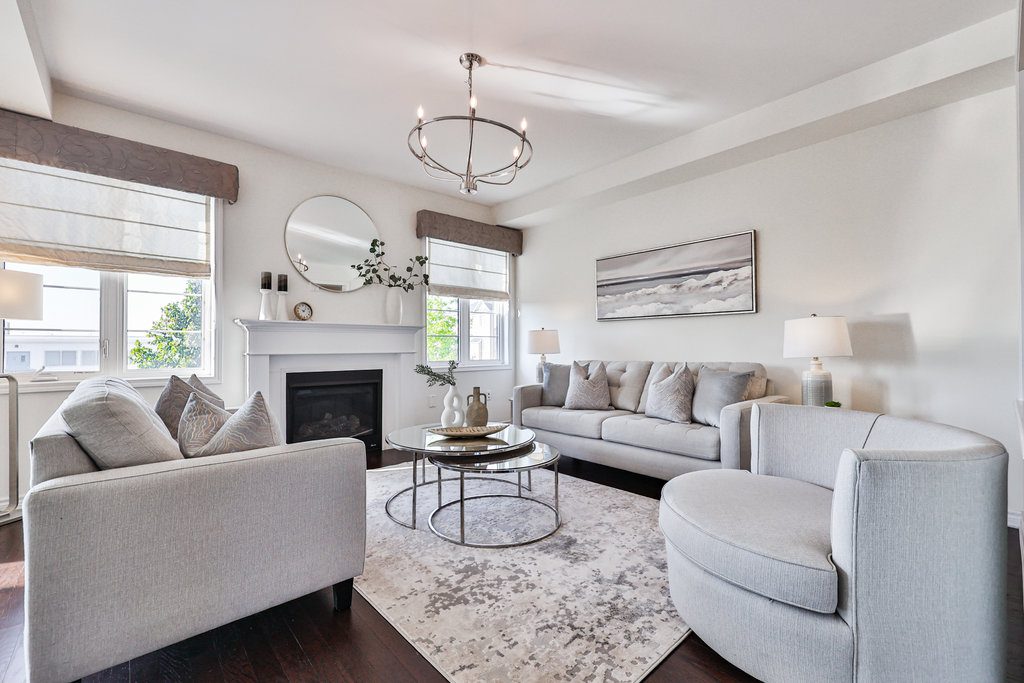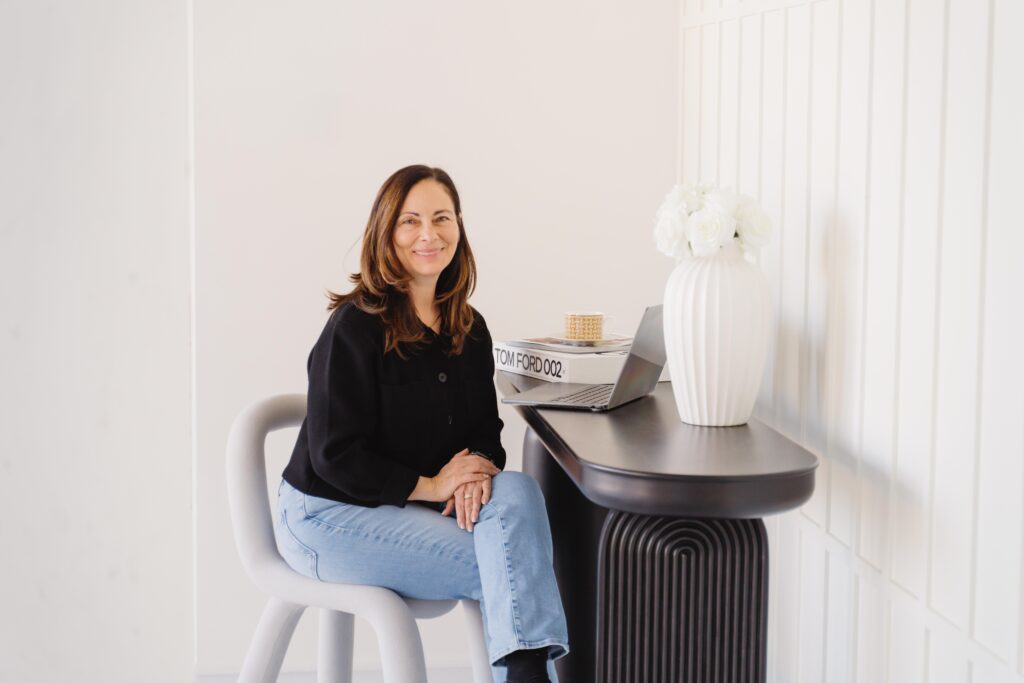Basement apartments are an increasingly popular trend we’re seeing among homeowners these days. As housing prices continue to rise, and the housing supply continues to diminish, people are looking for alternative ways to navigate the market.
If you followed the recent federal election, you’d know that housing affordability was a major part of each party’s platforms. However, policies and laws can only go so far and many Canadians want to take things into their own hands. This is where secondary suites and basement apartments come into play.
Here’s everything you need to know about buying a home in Milton with a basement apartment…
What Defines a Basement Apartment?
Basement apartments, sometimes also called secondary suites or accessory apartments are defined as a “self-contained dwelling” created by converting a section of the main dwelling into a secondary dwelling.
Basements make popular accessory suites because it’s often fairly easy and inexpensive to turn a basement into its own apartment.
What are The Benefits of Basement Apartments?
Whether you’re a first-time homeowner or an empty nester, there are many benefits to having a basement apartment as part of your house.
Getting your foot into the real estate market as a first-time buyer can be difficult. As home prices in Canada continue to rise, it’s becoming increasingly hard for young people to afford to buy a home. For these types of buyers, a basement apartment is a great option because it means they can collect rent from a tenant to help supplement their mortgage payments, improving affordability overall.
Empty nesters can also reap the benefits of a basement apartment. These types of homeowners are typically dealing with excess space in their homes. If they aren’t quite ready to downsize but want to maximize the use of their space and make a little extra money, a basement apartment is a great option.
Basement apartments are essentially real estate investments and can be used to further your space in the market, give exceptional landlord experience, and help you increase your investment portfolio.
Buying a House with an Existing Basement Apartment vs. Building New
Basement apartments can significantly increase the value of a home. So if you are in the market for a property with an existing basement apartment, expect to pay a higher price initially.
However, building a basement apartment might take an initial lump sum investment on your part, but in turn, will increase the property value should you want to sell later.
If you’re currently in the market for a home, and you know you want to rent out the basement, it’s certainly worth looking into buying a house that has an existing basement apartment. It would save a lot of work and time on your part.
However, it’s also important to consider the ROI. Do some research into how much building an accessory suite would cost vs. how much rent you could charge in that neighbourhood. This might give you a better idea of whether or not buying an existing house with a basement apartment is better for your unique situation rather than renovating and building your own.
Ready to buy a home? Get started here:
- Our Top 8 First-Time Buyer FAQs
- The True Cost of Buying a Home: What You Need to Know
- A Buyer’s Guide to Pre-Emptive Offers
Thinking About Building a Basement Apartment? Don’t Forget About the Legalities
Building a basement apartment in Milton requires some careful planning and consideration on the homeowner’s part. For example, before you start building, you need to obtain a building permit and ensure your apartment meets certain regulatory standards:
- The basement apartment must be located in a detached single-family home.
- It must have access to municipal sewer and water with either laundry in-suite, laundry connections, or shared laundry services.
- There must be at least three legal parking spaces on the property.
- Ceiling height must be at least 6′ 11″ (2.11 m), and 6’5″ under beams
- It must not be greater than 85m² or 915sq/ft in size.
- 45 min floor and wall fire separation (requirements are different in older buildings)
- The dwelling must have its own private entrance.
- The home must have a walkout egress or window egress with a minimum 3.8 sq/ft clear opening.
- The building must have all the appropriate permits and inspections.
Legal vs. non-legal basement apartments is a hot topic in Milton and the GTA. Learn more about it in our blog What Makes a Basement Apartment Legal in Milton here.
How to Maximize Your Basement Apartment Income
Building a basement apartment is more than just sectioning off a part of your home and collecting rent. You are essentially becoming a landlord, which comes with significant responsibility.
Although no two renters are alike, here are some general features that renters look for in a basement apartment:
- High-quality appliances and finishes (think, faucets, tub, shower, sink)
- Higher-than-average ceilings
- Large, bright windows
- Nice lighting
- Open-concept floorplans
- All-inclusive utilities
- Proximity to public transit, healthcare, grocery, and amenities
Read our quick guide to Milton Real Estate here to learn more about the best neighbourhoods for your unique needs.
It’s also important to attract the right type of tenant for your property. Consider your location and your ideal tenant and ensure that you are doing everything you can to attract that type of person to your listing. It’s also a good idea to complete credit checks and have your tenants fill out applications before agreeing to rent the apartment.
Did you know we host first-time buyer webinars every month? Sign up to join our next webinar for FREE here.






